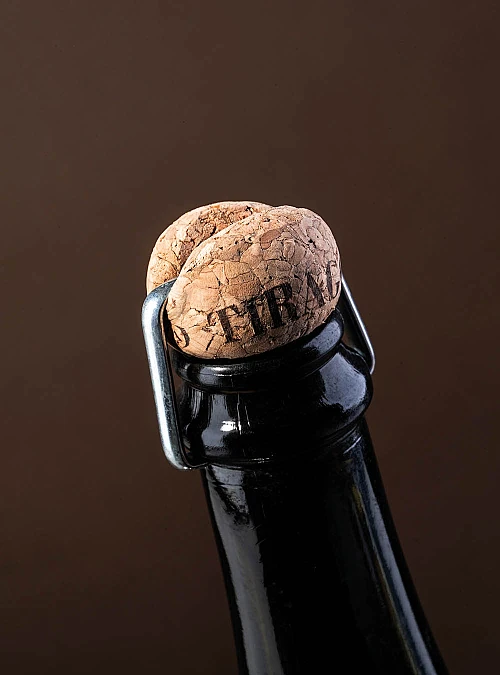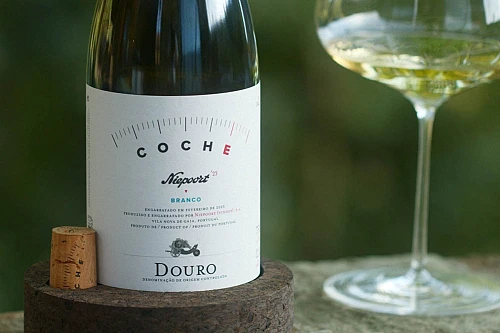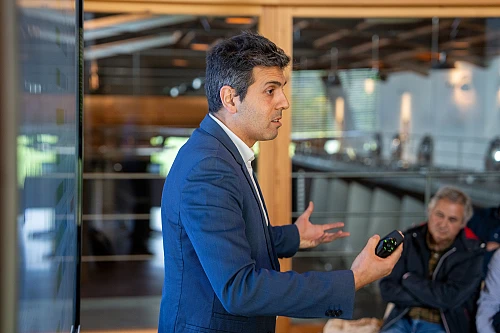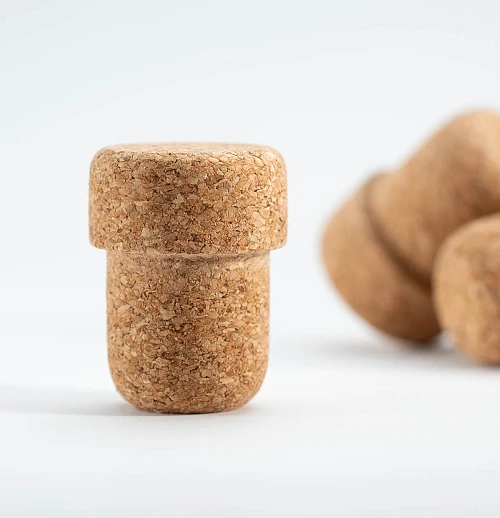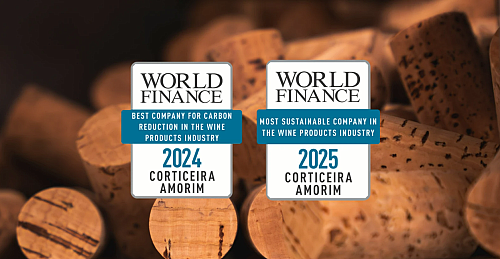- Media Center
- News
News Media Center
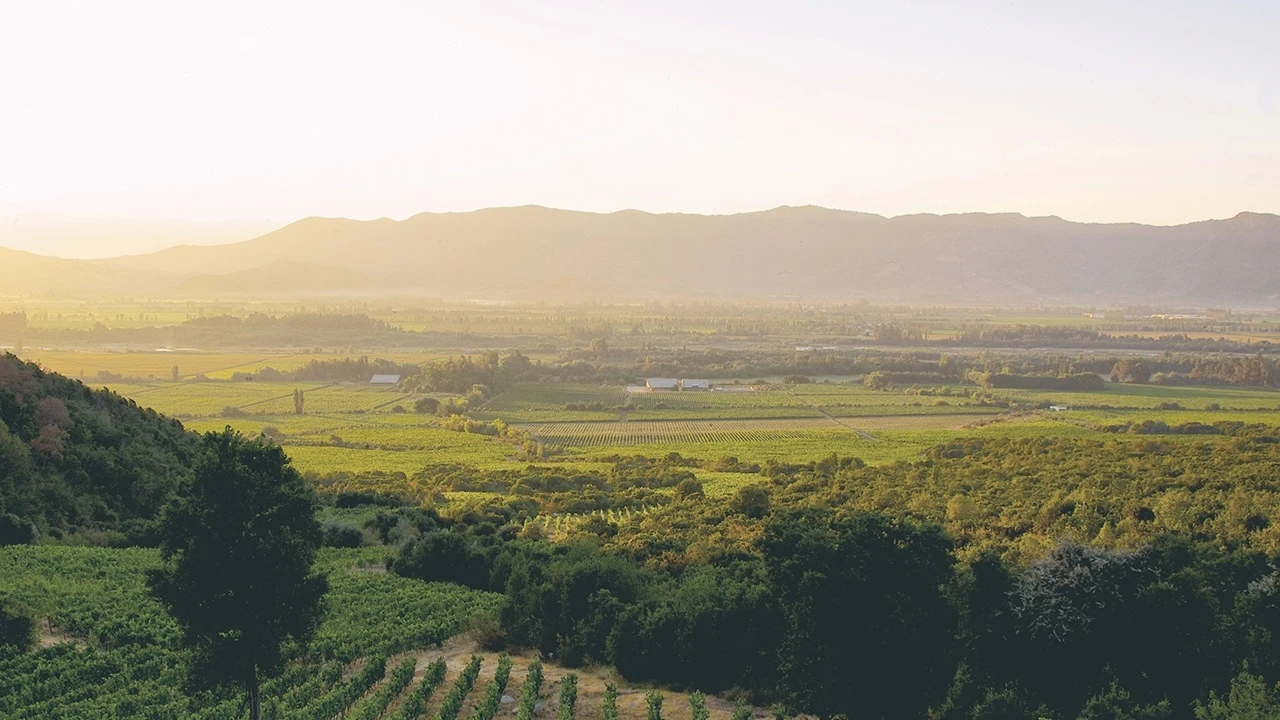
Emiliana - Perseverance & Sustainability
The winner of the Amorim 2024 Special Prize at the Green Awards is an essential reference in the world of organic viticulture, known for the excellence of its wines and its strong commitment to sustainability. For Chile’s Emiliana, the future is organic. In this interview, Cristian Rodríguez, General Manager, and Sebastián Tramón, Sustainability Director, tell us why.
Over 1000 hectares of organic and biodynamically treated vineyards spread across Chile’s best wine valleys, strategic points where the soil, climate, topography and human intervention harmonize to produce some of the most superb organic wines in the world. Created in the late 1990s by two visionaries - Rafael and José Guilisasti - Emiliana was born with the aim of making top quality wines with great respect for nature and people, converting conventional into 100% organic and biodynamic vineyards. More than twenty years later, sustainability has become a way of life, and that mission has been fully accomplished, but never definitely ended: it is dynamic, like the vineyards where it all began. They claim to be “organic by conviction, by ideology and by love” and they work and innovate every day with the aim of reconnecting people with nature.
A GREEN LEADER
Emiliana has a vast portfolio that includes some of the most famous Chilean wines. It is Chile’s largest exporter of organic wines (and is in the Top 10 of the country’s largest producers), with a presence in 60 countries, and is a leader in key markets in the organic wine segment, such as Denmark, the Netherlands, the United Kingdom, Brazil, Japan and the United States, among others. The company was the first Chilean wine producer to receive the Regenerative Organic Certified seal, which represents the world’s highest standards in organic farming, with very strict requirements regarding soil health, animal welfare and social justice. More recently, it also obtained the renowned B Corp certification, thus strengthening its position as a world leader in sustainability and joining the ranks of companies that stand out for their exemplary environmental, social and economic practices.
“For us, organic is the starting point, or the most important, knowing that sustainability is much broader than that, but we believe that organic is the key when you work or are in an industry that belongs to agriculture, that works the soil intensively. And so, all of our requirements for certification are, first, organic and then we go beyond organic, to do a little more and comply with other sustainability standards.” sums up Cristian Rodríguez, General Manager of Emiliana. Sharing the same sustainability standards, the decision to use cork came naturally: “We always say that we don’t exist unless our wines are of high quality. I believe that quality should be present not only in the wine, but in all manufacturing aspects, particularly the cork, which plays an important role when selecting a stopper to maintain quality.
Secondly, we always claim to be organic at Emiliana. That’s the second reason we exist. That, in my opinion, also holds true when choosing a cork: quality comes first, followed by sustainability,” Rodríguez says.to make sure that the environmental conditions of production are sustainable, that the conditions of employees are sustainable, that the conditions of communities are sustainable, that packaging is sustainable. For this reason, the type of stoppers we use is also very important. It’s a challenge, but in the end it must be something that cuts across all elements of the production and supply chain.”
THE BEGINNING OF IT ALL
First organic, then regenerative, was the plan. They began this journey 25 years ago, focusing on the foundation of everything: soil. That’s why Emiliana only participates in certifications that take organic into consideration in a very strict way, as well as certifications that have been independently examined by third parties, in order to provide the consumer with credibility. Another concern is integrality. As Sebastián Tramón, Emiliana’s Sustainability Director, explains: “I can’t just say that I have solar panels and therefore I’m sustainable. You have eleven people work in sustainability management at the company, which was set up in 2014, and they are responsible for designing an innovative strategy. Cristian explains this cross-cutting vision: “When we say ‘the future is organic’, we believe in a very powerful cultural change, which basically has to do with everything, it has to do with the way we look after ourselves, with food, it has to do with the use of pesticides, which we find extremely harmful to agriculture.” This cultural change begins within the company itself, through the exchange of lessons, practices and expertise, and extends to every wine they launch onto the market, winning award upon award.
THE MOMENT FOR ORGANIC WINES
When Emiliana was founded, Cristian Rodríguez explains, “there was absolutely nothing”, organic wines weren’t even part of the conversation. After years of sustained growth, organic wines are now experiencing a consolidation phase, accounting for 20% of vineyards in Europe, which is equivalent to the whole vineyard area in Chile. The trend is favourable, according to Rodríguez, even though climate change presents significant obstacles for organic farmers, who already face greater costs: “There are forecasts that the organic wine market will triple by 2030.” He believes that organic wines have far higher prospects than non-organic ones.
Commitment to organic wines does not imply a restricted view. As Tramón explains, “we work on a scale that allows us to prove that a project can be accomplished on a large scale. Therefore, having organic products in our entire portfolio, in different price ranges, and making organic an everyday thing rather than just a niche, trying to show that it can be done and can be for mass consumption, is also something that allows us to be in more than 60 countries, and to have enormous success with the various wine ranges.”
A MOSAIC OF EXCEPTIONAL TERROIRS
From the Limarí Valley, an oasis in the north of Chile, to the Casablanca Valley, where white grape varieties grow and benefit from the influence of Pacific breezes, to the Cachapoal Valley, a red wine paradise, to the Bío-Bío Valley in the south, each terroir gives the wines a unique and unmistakable character.
Organic farming, Cristian Rodríguez explains, produces “a greater balance in the fields that allows for higher quality in our vineyards. Obviously, in addition to healthy grapes, the terroir is essential.” Sebastián Tramón reinforces this perspective, adding new data: “One element that also makes a difference has to do with the microbiological terroir. In the past, terroir was viewed only as the geographical component, like the climate, but it is now obvious that the microorganisms, fungi and bacteria present both in the soil system and in the vine itself have an impact on the way it develops, also in terms of growth. And in terms of winemaking too: a significant proportion of our wines are spontaneously fermented, using only the yeasts that are present in the soil and in the vineyard itself and that are close to natural areas, forests. Thus, nature has an impact and is present there, and this is reflected in the variety of our wines.”
By combining all these unrepeatable elements, great wines are produced, based on great practices. Sebastián Tramón, who was distinguished as Personality of the Year at the Green Awards, recalls the importance of the exposure that comes with such recognition “We think that the Amorim Special Award, which also recognized this consistency in work over a long period of time, addresses the issues that we find relevant, such as the questions related to production factors, the agrochemicals used, or the way in which we are preventing the contamination of ecosystems, or preventing Emiliana’s employees from being exposed to highly toxic compounds, which can also reach consumers - all of this is recognized in some way, and it was extremely important. We thank Amorim for helping us bring this issue to light.”
Ultimately, it’s the recognition of a consistent attitude and a huge amount of teamwork, which Cristian Rodríguez is keen to emphasize: “The secret to success is not just the secret to success in wine, but the secret to success in life: it’s perseverance, years of perseverance, I guess that’s it. There are many factors that add up to a beautiful project, which leads to amazing, very good wines. But it has to do with the fact that we belong to a family business that has been in wine - and only wine - for more than 30 years, with more than 25 years’ experience in the organic sector, that we are located in the best valleys in Chile, and that we have a great team, a fantastic team, in winemaking, oenology and sustainability.” That sounds easy, but it’s just brilliant.

